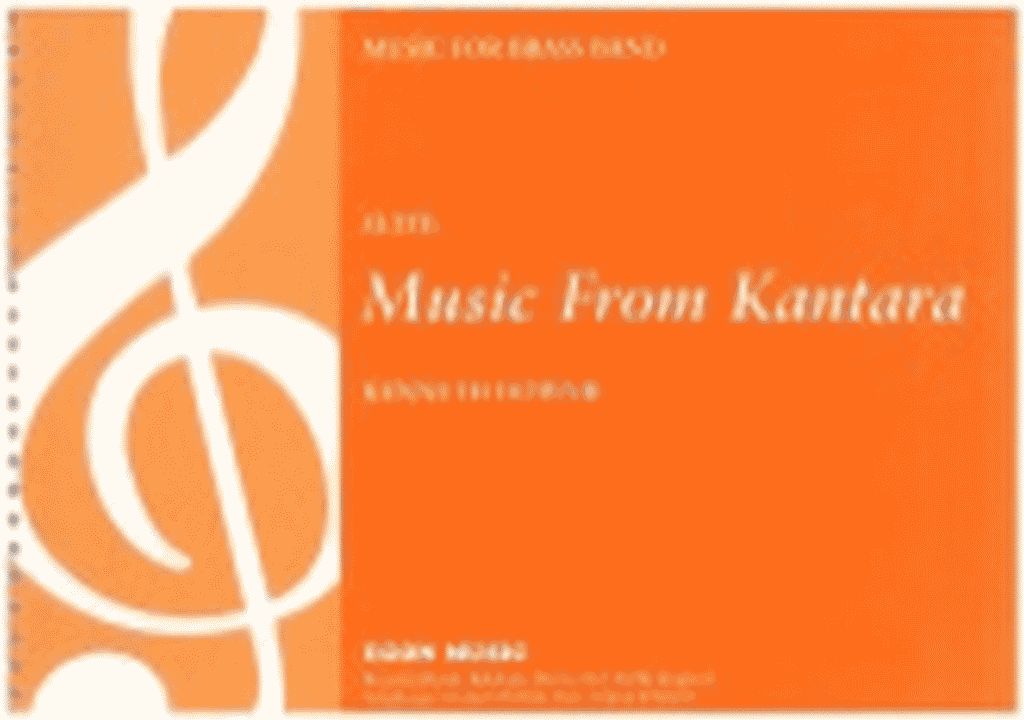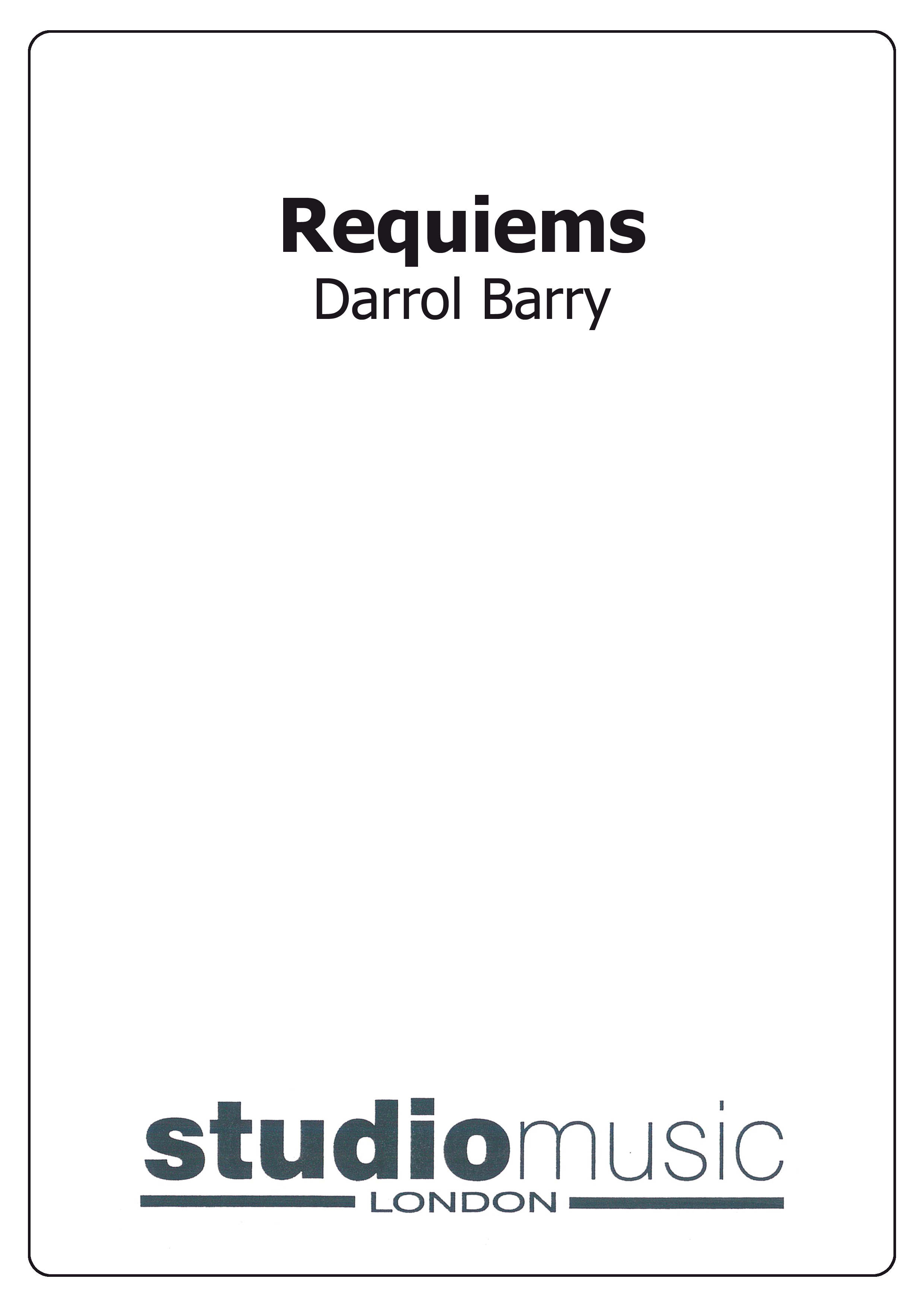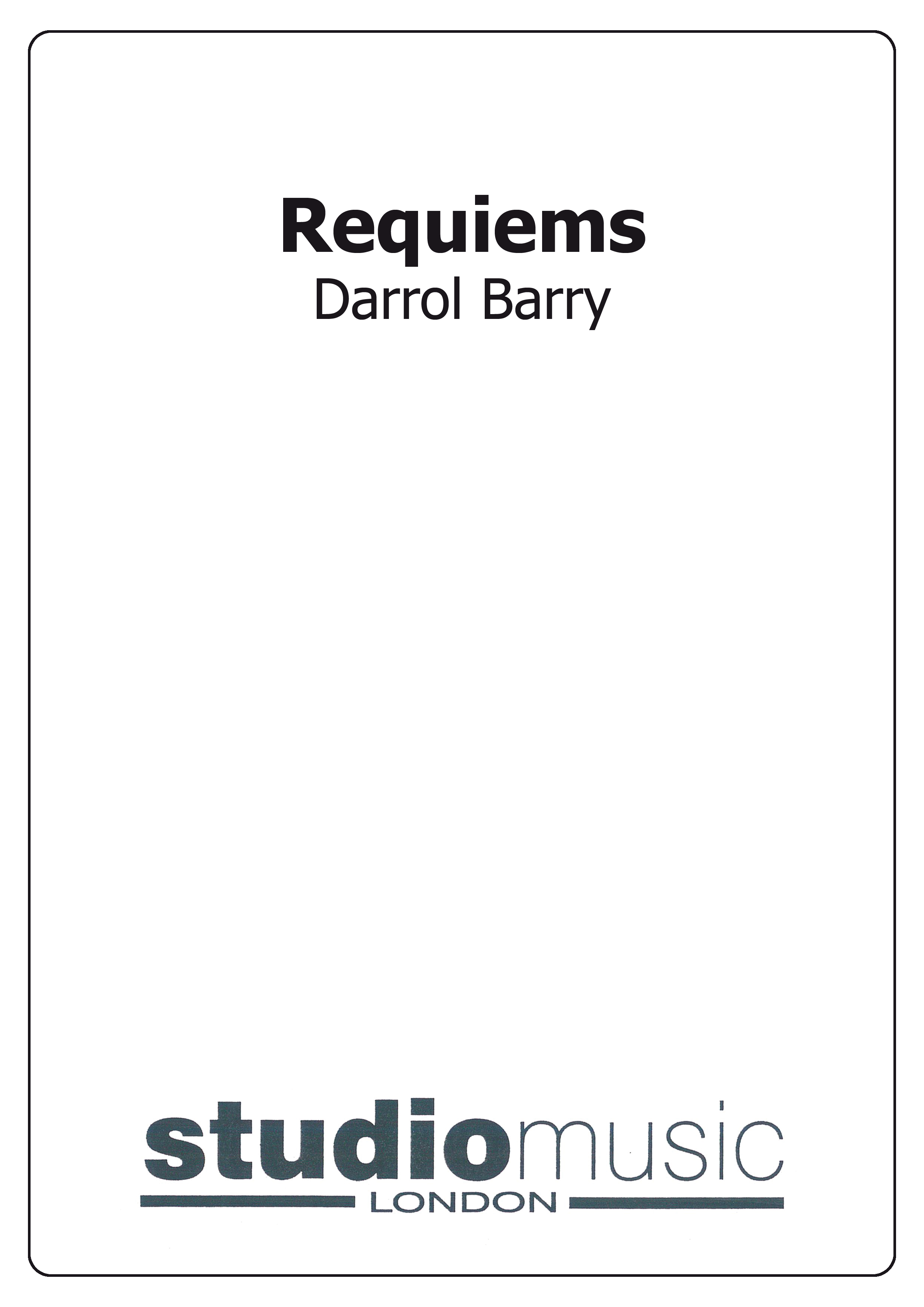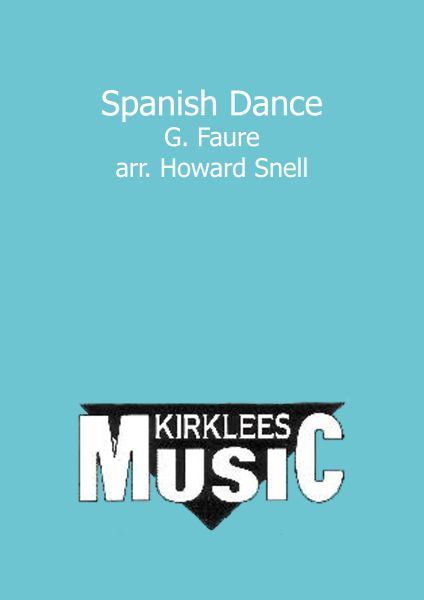Results
-
 £24.95
£24.95Music from Kantara (Score Only)
4th Section Test Piece 2016 National Finals of the British Brass Band Championship. Music from Kantara was written in 1994 and was first performed by Watership Brass, a band based near Newbury. The title comes from the name of the former home of the composer, in Winchester, a name which was inherited from the previous owners, and which presumably comes from the ruined castle of that name on the Northern coast of Cyprus. The music is not programmatic: it does not tell a story. It is a three-movement suite of absolute music, in a tuneful and straightforward idiom. The slow, central movement calls for playing of a sensitive, vocal nature.
Estimated dispatch 7-14 working days
-
£37.95
Music from the Elizabethan Court (Score Only)
A three movement suite: Earl of Oxford's March; Pavane; King's Hunting Jig.
Estimated dispatch 7-14 working days
-
 £99.95
£99.95Requiems (Score and Parts)
A suite in six movements: Tuba Mirum; De Prefundis; Sanctus; Gloaria; In Pardisum; Dies Irae
Estimated dispatch 7-14 working days
-
 £57.95
£57.95Requiems (Score Only)
A suite in six movements: Tuba Mirum; De Prefundis; Sanctus; Gloaria; In Pardisum; Dies Irae
Estimated dispatch 7-14 working days
-
£82.95
Salute to Youth (Score and Parts)
A suite in three movements: Resilience; Romance; Relaxation.
Estimated dispatch 7-14 working days
-
£37.95
Salute to Youth (Score Only)
A suite in three movements: Resilience; Romance; Relaxation.
Estimated dispatch 7-14 working days
-
 £27.50
£27.50Spanish Dance
From the Dolly Suite, the Spanish Dance exhilarates and amuses in equal measure with its good humour and high spirits.
Estimated dispatch 7-14 working days
-
 £10.00
£10.00Swedish Festival Music (Study Score)
This three-movement suite was commissioned by the Swedish Brass Band Association as the test piece for the Championship Section of their 2008 National Contest. The first movement is inspired by the magnificent Swedish hymn 'How Great Thou Art'. Indeed the influence of that hymn can be traced in all three movements. The declamatory style of the opening gives way to other, more reflective expressions of awe and wonder. A more animated section develops before a final, triumphant statement of the 'How Great' idea returns to finish the movement. The slow second movement features another much-loved Swedish hymn. The music provides plenty of scope for expressive playing, and a feeling of intimacy should be created by the use of several short solo passages. The third movement Allegro brings a totally different, dance-like mood with frequent references to a reel from the region of Uppland. This eventually brings a return to the opening subject and a final, triumphant reference to 'How Great Thou Art'.
Estimated dispatch 7-14 working days
-
£69.95
The Shipbuilders (Score and Parts)
A wonderful original suite for brass band by Peter Yorke with great musical imagery. It is in four movements: Web of Steel; The Launching; All Hands at Work; Maiden Voyage.
Estimated dispatch 7-14 working days
-
£32.95
The Shipbuilders (Score Only)
A wonderful original suite for brass band by Peter Yorke with great musical imagery. It is in four movements: Web of Steel; The Launching; All Hands at Work; Maiden Voyage.
Estimated dispatch 7-14 working days
